Celebrated pianist Una Hunt introduces Piano Passions, her new radio series celebrating her favourite piano music associated with Ireland, which features within Evelyn Grant's Weekend Drive on RTÉ lyric fm from Saturday 8th October.
Imagine a situation where the music of Sibelius was rarely heard in Finland, or Grieg's music wasn’t played in Norway - and yet this is the state of affairs in Ireland in relation to our historic composers. The underlying reasons for the neglect are more complex than they first seem – and, I’m convinced it’s not due to a lack of interest among modern audiences; finding the music is often far from simple.
When I was a little girl enjoying my piano lessons, it seemed odd to me that I never seemed to have any Irish music or Irish composers to play. Back then, there was very little available and the composers were mostly regarded as obscure, to say the least. At that time, I didn’t really understand that it couldn’t be acquired from the local music shop and without accessibility it’s hard to gain popularity for anything, let alone a piece of music.
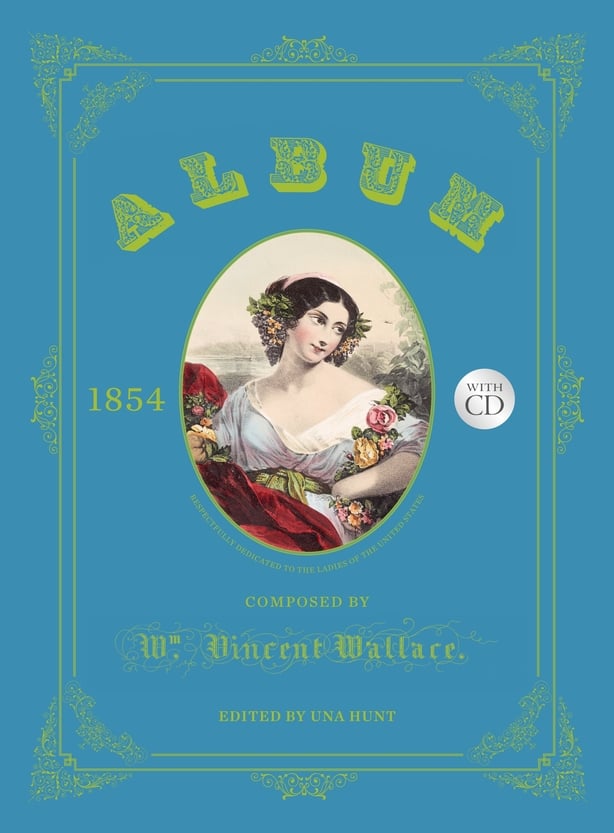
and recorded the rare facsimile music album by William Vincent Wallace,
the original of which was issued in New York in 1854
And so began an extraordinary journey to uncover Ireland’s musical heritage. Along the way, I discovered that lots of music was missing from publisher’s archives and libraries – information gleaned only after hours of exhaustive searches. But, it’s not all doom and gloom and there’s been so much to enjoy along the path to discovery. Imagine the excitement on opening volumes in the National Library of Ireland probably untouched by human hands for a century or more.
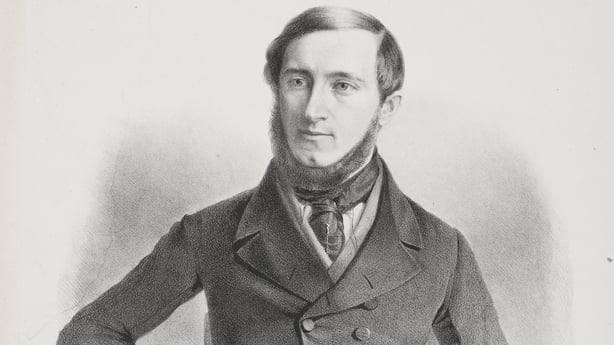
There are now many pieces that count among my Irish piano passions, and the collection has grown exponentially with the Arts Council's assistance towards the publication of my forthcoming collection The Irish Piano Album, when this music will finally be widely available. During lockdown, we all yearned for a holiday abroad and it got me thinking about composers such as Waterford-born William Vincent Wallace who put his life at risk setting out on long and arduous journeys – facing many dangers on the way and sometimes taking months to arrive safely at his destination. But, back then, travel was key to developing the livelihoods of composers as it led to increased opportunities.
Wallace is much better known nowadays as the composer of several successful operas, but he was also Ireland’s first pioneer composer – travelling around the world as a virtuoso on both the piano and violin and promoting Irish music everywhere he went. Wallace was truly proud of his Irishness and his romance À mon Étoile - To my star is a true declaration of love for his homeland: 'I have never forgotten Erin, the Polestar of my affections, and of those of every Irishman – the home of love and bravery.’
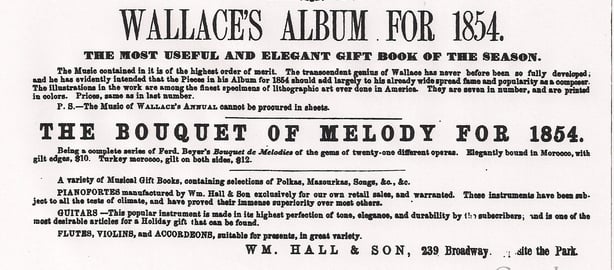
The theme of travel continues with the Bohemian composer, Ignaz Moscheles – nearly lost at sea in the crossing from Holyhead to Howth. Still, he brought back with him to London a musical souvenir, The Recollections of Ireland for piano and orchestra which includes three celebrated Irish airs; this work is entirely unique in terms of early nineteenth century repertoire. For others visiting the Emerald Isle, they frequently settled for years in Irish cities and set up enterprising businesses. This was true of Francis Panormo, who started a music business at 5 Church Lane, Dublin where he sold sheet music and taught the piano. A couple of his pieces were in vogue for 40 years or more and sold like hot cakes in the shop – the celebrated Bird Waltz and Woodlark Rondo.
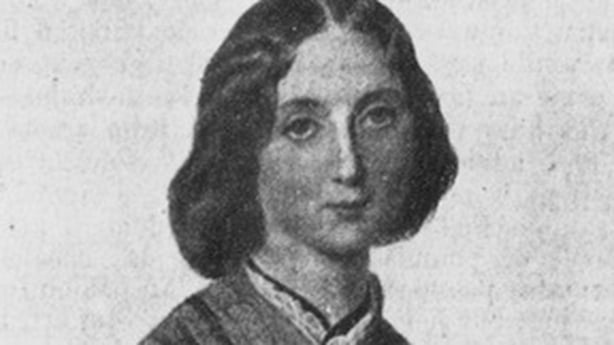
Female pianists were the lifeblood of the nineteenth-century drawing-room and salon, and the explosion in sheet music in the first half of the nineteenth century was directed entirely at women. Despite this and the fact that the piano was regarded as a woman's instrument – back then in a world dominated by men, it was very difficult for a female to be taken seriously, either as a pianist or a composer. Yet, Fanny Robinson managed to do both rather well. She drew admiration from Clara Schumann and composed and published an entire legacy of piano pieces which is still virtually unknown. Stella is a brilliant salon waltz – a testament to her ability both as a composer and a pianist.
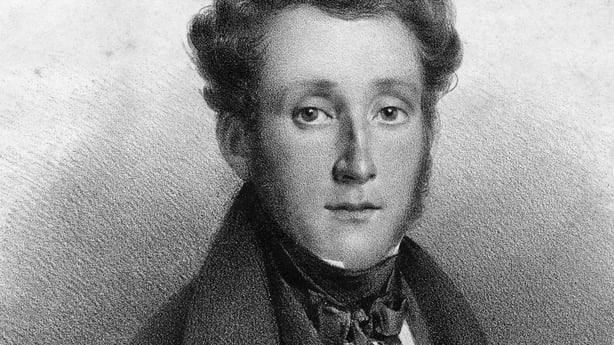
A pair of ‘sister’ pieces which bear a relationship to one another – La pluie de perles and La nouvelle pluie de perles - were composed by the Limerick composer, George Alexander Osborne. This music might never have existed if Osborne had not set out to seek fame and fortune in continental Europe, ending up as one of the most popular performers in the famous Parisian salons of the 1830s and 40s. It was among the glittering Parisian set that his pluie de perles was first premiered and it proved such a hit, that he published the second piece with an eye to the market, just one year later.
I began with a journey and finish with another as I can’t take leave of Piano Passions without mentioning John Field, who remains Ireland’s most recognisable composer for the piano. It strikes me that while Field’s name is well-known, his music is not – not even his famous Nocturnes which were so influential on Chopin and many other prominent pianists.
Listen: John Field's Nocturne no 5 in B flat major
As a young man, Field went on a journey to Russia that would change the direction of his life. His art was so innovative and influential in Russia that he is still regarded as one of the fathers of piano playing. His nocturnes embody Field’s approach with their dreamy floaty quality and lyrical phrasing signalling a new direction in composition for the piano. simply put, Field imbued the nocturne with a whole new expression very much his own.
Piano Passions features within Evelyn Grant's Weekend Drive on RTÉ lyric fm from Saturday 8th October - listen back here.

